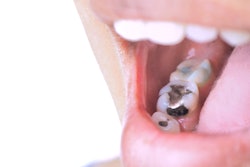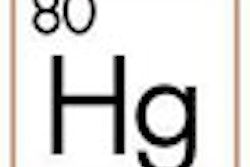
LONDON (Reuters) Jan. 15 Dental amalgam, containing mercury, poses no health risk to the human nervous system, an EU scientific committee said on Tuesday.
The opinion supports arguments by some dentists and governments, who have said the material is safer and more durable than alternatives. But the results caused a stir among patients' organizations who argue amalgam is dangerous, because of the known side effects of mercury.
"The facts do not add up -- mercury is the third most toxic poison in the world and we are still putting it in people's mouths," said Becky Dutton of patient organisation Mercury Madness.
The EU said it had investigated claims of a link between amalgams and a variety of systemic conditions, particularly neurological and psychological or psychiatric effects.
"It is concluded however, that no risks of adverse systemic effects exist and the current use of dental amalgam does not pose a risk of systemic disease," it said.
Most countries advise against use of amalgam for children and pregnant women due to mercury's impact on brain development, but patient organizations believe the rest of the population, carrying an average of 2.5 grams of amalgam in their mouths, is also at risk.
The EU report said no studies had shown that dental personnel suffer classical signs of mercury intoxication.
"All I can say is that if mercury/amalgams are so safe, why have three countries just banned them?" anti-mercury campaigner Dutton asked.
This month the Swedish government is expected to decide on a ban, while Denmark and Norway are taking similar steps.
Another patient organization in Spain said it rejected the provisional report because it was partial and ignored the World Health Organization (WHO) and other scientists' recommendations.
"The main dentist organization (the American Association of Dental Surgeons) before the ADA, already in the 1830s saw a clear relation cause-effect with amalgam...and prohibited its members to place amalgams in people's mouths," the Spanish National Association MERCURIADOS told Reuters in an email.
The opinion provides the EU with scientific advice needed when preparing policy in relation to its wider mercury strategy, which has for example banned the use of mercury in barometers.
The report was prepared by the Scientific Committee on Emerging and Newly Identified Health Risks (SCENIHR) and is made up of external experts.
A public consultation will run to February 22, after which the EU could potentially revise the preliminary report.
Then it is up to the scientific committee to adopt the final opinion and the timeline depends on the number and sort of comments received, the European Commission told Reuters.
Copyright © 2008 Reuters Limited. All rights reserved. Republication or redistribution of Reuters content, including by framing or similar means, is expressly prohibited without the prior written consent of Reuters. Reuters shall not be liable for any errors or delays in the content, or for any actions taken in reliance thereon. Reuters and the Reuters sphere logo are registered trademarks and trademarks of the Reuters group of companies around the world.



















